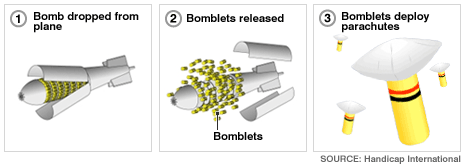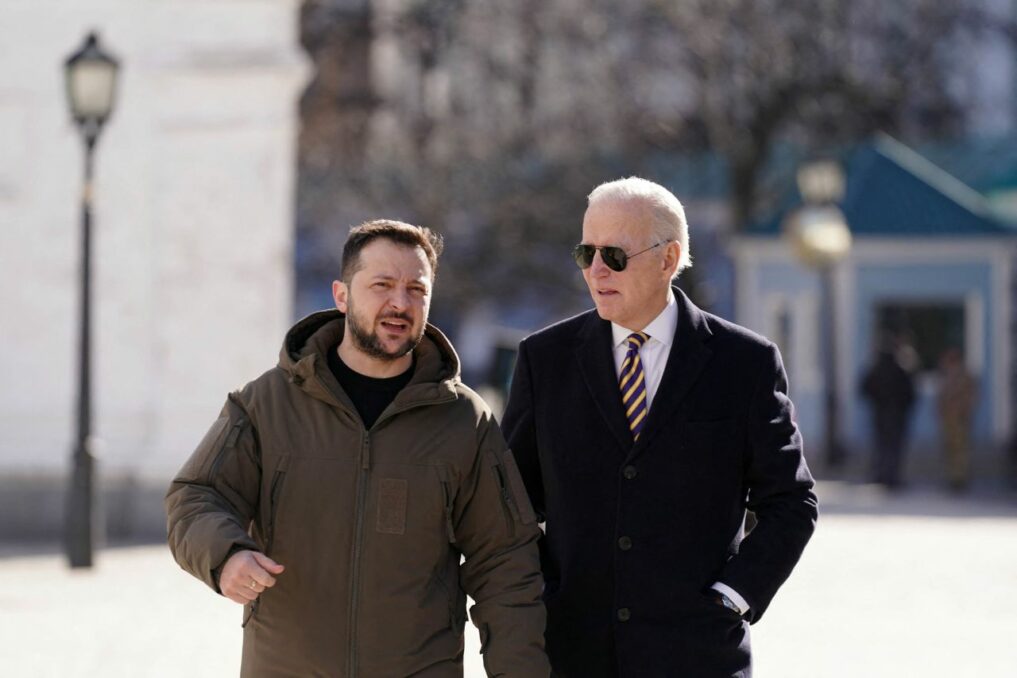As the White House confirms its “difficult” decision to provide Ukraine with cluster munitions, it has sparked a heated ethical debate surrounding the potential implications and consequences of this action. Cluster munitions have a history of causing unprecedented civilian casualties and have been banned by 120 countries. Such a move requires looking into the reasoning behind the US decision, the perspectives of key stakeholders, and the concerns raised by human rights groups.
Ukraine’s Plea and US Justification
Ukraine’s Dire Need for Ammunition
The Ukrainian government had persistently requested dual-purpose improved conventional munitions (DPICM) from the United States. Uptil now, Ukraine had already been using cluster bombs being supplied by Turkey along with unitary artillery which are now falling short. The Ukrainian forces’ struggle to maintain sufficient artillery rounds during a counteroffensive was a crucial factor driving the US decision calling it the “urgency of the moment.”
US Justification and Assurances
The Biden administration defended its choice, emphasizing the urgency of the moment and the desire to support Ukraine in its fight. National Security Adviser Jake Sullivan acknowledged the risk of civilian harm associated with cluster munitions but asserted that the US-supplied munitions had a low dud rate, below 2.35%. The decision to provide these weapons bypasses US law prohibiting the use of cluster munitions with a failure rate exceeding 1%. Such rashness in policy making has raised domestic criticisms for Biden.
The White House believes, according to NSA Sullivan, that Ukraine will not use these bombs on their own people on the territory that has been captured by Russia and that there is no incentive to do so. Ukraine has given “assurances” of ensuring “minimal” civilian casualties and execution of regular demining operations which would be carried out anyway due to the Russian use of such munitions.

Human Rights Concerns and International Backlash
Human Rights Watch Calls for Cessation
Human Rights Watch condemned both Russia and Ukraine for their use of cluster munitions and urged the US not to supply them. The group highlighted the potential long-lasting threat posed to civilians by unexploded bomblets, emphasizing the need for immediate cessation of their use. However, once confirmed, human rights groups strongly criticize the decision to send cluster bombs to Ukraine, labelling it as a “terrible mistake.”
The Guardian reported Paul Hannon, vice-chair of the International Campaign to Ban Landmines and Cluster Munition Coalition Governance Board, saying: “The Biden administration’s decision to transfer cluster munitions will contribute to the terrible casualties being suffered by Ukrainian civilians both immediately and for years to come. Russia and Ukraine’s use of cluster munitions is adding to Ukraine’s already massive contamination from explosive remnants and landmines.”
Russian Opposition and Accusations
The Russian ambassador to the US, Anatoly Antonov, criticized the US decision, calling it an admission of failure and “a gesture of desperation” to prevent defeat. Antonov accused the US of escalating the conflict and disregarding concerns raised by Washington’s allies and UN Secretary-General Antonio Guterres. He highlighted the cruelty and cynicism of transferring deadly weapons that could harm innocent civilians. Citing the heightened risk of “malfunctioning submunitions” he blamed the US of civilian deaths in the many years to come. He called it “an act of madness.” However according to NSA Sullivan, Russia has already been using munitions of high intensity.
US Allies, Congressional Opinions, and International Treaties
Mixed Reactions from US Lawmakers
The decision to provide cluster munitions to Ukraine received mixed reactions among US lawmakers. Some expressed concern, labeling it as alarming and a mistake, citing the potential risk to civilians. However, others supported the move, arguing that aiding Ukraine’s defense was vital in reducing civilian casualties and enabling Ukraine to reclaim its territory.
International Treaty and Germany’s Stance
More than 120 countries have signed an international treaty banning the use, production, transfer, and storage of cluster munitions. However, the US, Ukraine, and Russia are not party to the agreement. Germany, a signatory of the treaty, refrained from providing cluster munitions to Ukraine but expressed understanding for the US decision, citing Russia’s previous use of such munitions in its aggression against Ukraine. Reports suggest that the US is in a position to supply Ukraine with a batch of 10000 munitions currently already present in Europe.

The US decision to provide cluster munitions to Ukraine has sparked controversy and drawn criticism from human rights groups and Russia. While the US justifies its decision based on Ukraine’s urgent need for ammunition and assurances of low dud rates, concerns about civilian harm persist. The conflicting perspectives and international treaties surrounding cluster munitions further complicate the debate. As the conflict continues, the humanitarian impact and long-term consequences of this decision remain subjects of intense scrutiny and debate.
Another crucial question to delve into is whether the Biden administration’s emphasis on human rights as a fundamental aspect of its foreign policy is being overshadowed. If so, then is this really an act of “desperation” by the West which NSA Sullivan claims such a move is a “bridge” between the current (low) rate of production up to the point when “ample” unitary artillery will be available? Or is this the right moment to strike after cracks in Putin’s armor due to the Wagner mutiny and a weakened image both at home and abroad?












